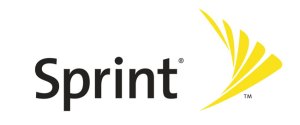
In an interview with Forbes, Sprint’s president of business markets Paget Alves indicated that the company plans to introduce a tablet device with integrated WiMax 4G mobile broadband service during 2011. And while Alves didn’t offer any specifics about what device that tablet might be, he did indicate Sprint is also planning to sell tablets that run something besides Google’s Android mobile operating system.
Sprint currently sells a version of Samsung’s Android-powered Galaxy Tab, but it runs on Sprint’s 3G network rather than the higher-bandwidth WiMax 4G network Sprint has been building out in conjunction with Clearwire.
Alves also indicated he anticipates tablets will be particularly appealing to business users, claiming 70 to 70 percent of the chief information officers Sprint speaks with are interested in deploying tablets to their employees in one way or another. Between a strong enterprise focus and a plan to offer non-Android tablet devices, Sprint would seem to have several possibilities for 2011, including RIM’s PlayBook tablet (which integrates with RIM’s existing BlackBerry architecture widely deployed in enterprises). Hewlett-Packard has also indicated it will be launching webOS-based tablets in 2011, and Microsoft has indicated that a slew of Windows 7 tablets based on Intel’s low-power Oak Trail processors will hit the market in 2011—Intel also just confirmed it expects its processors to land in a range of tablets next year.
Sprint may be counting on enterprises adopting WiMax powered devices as a way to bolster its bottom line in 2011. Although Verizon is rolling out LTE service that can outperform WiMax, the company won’t have LTE-savvy phones or tablet devices until well into the year. Similarly, while T-Mobile’s HSPA+ network can also outperform WiMax in some cases, the company isn’t currently offering any HSPA+ tablets—AT&T is in a similar boat with its HSPA+ network, except it doesn’t currently have any handsets or tablets that can tap into it.


